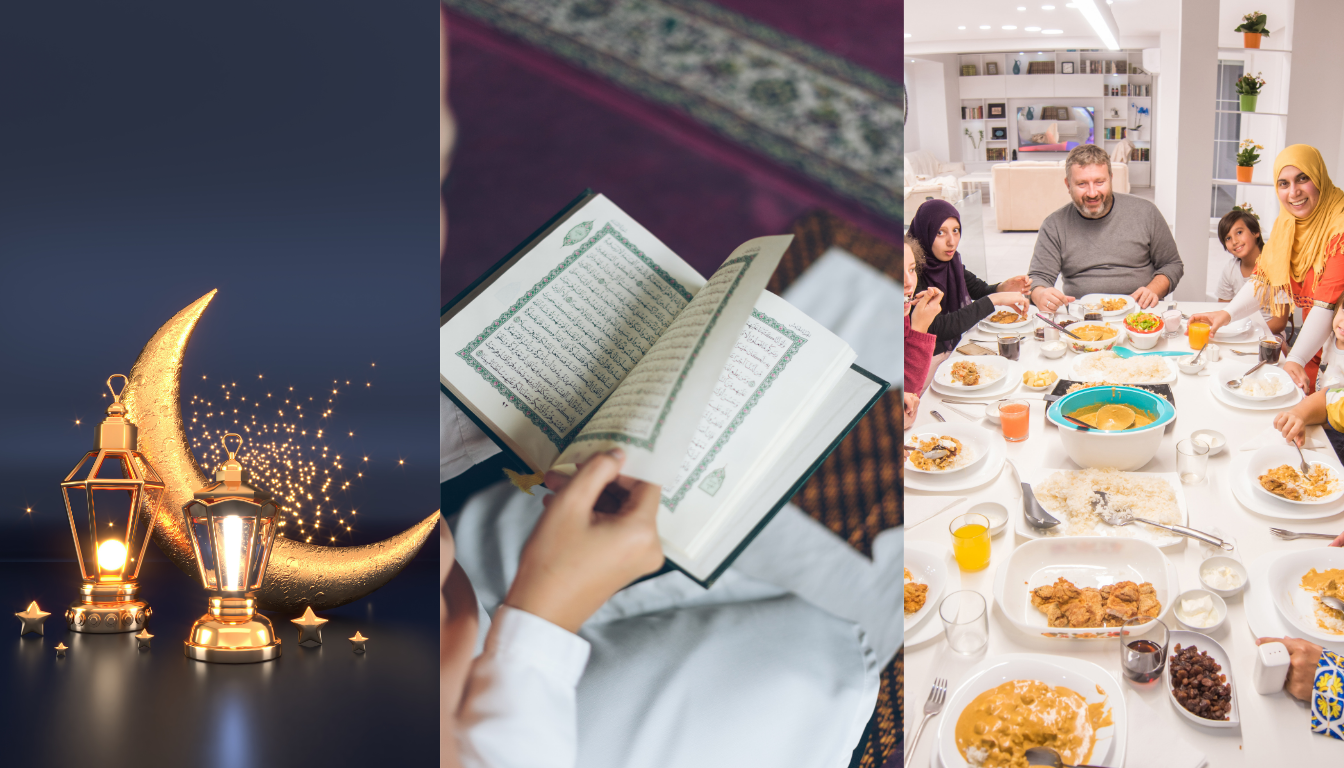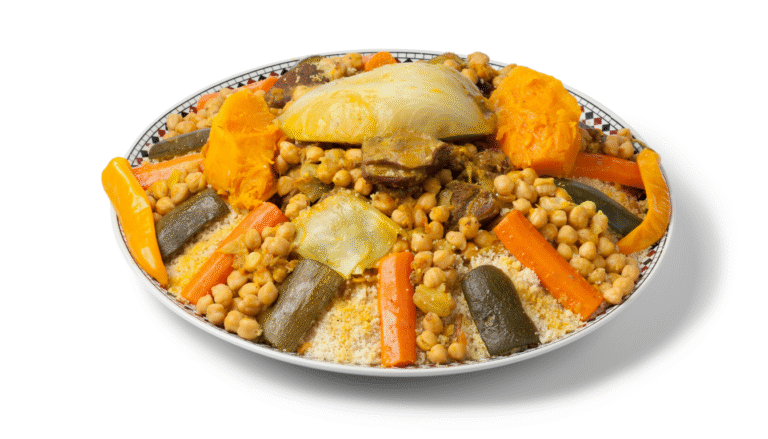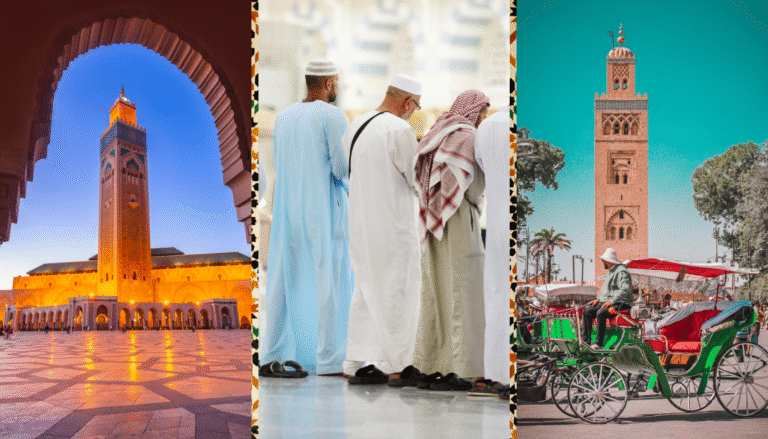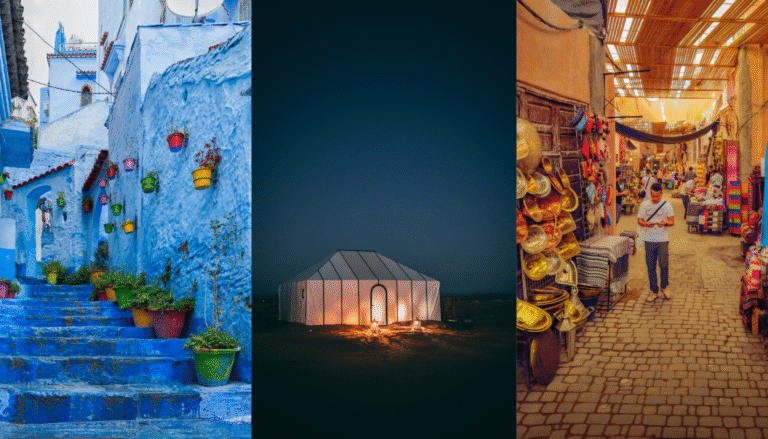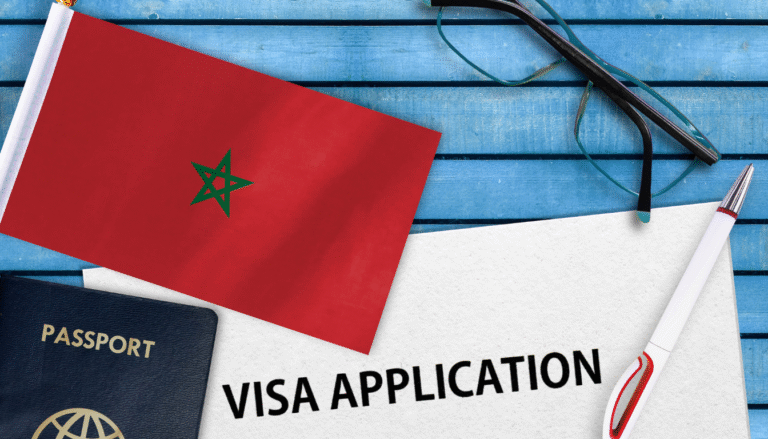Ramadan in Morocco: What You Need to Know
Are you planning a trip to Morocco during Ramadan and wondering what to expect? Ramadan is a significant month in the Islamic calendar. It brings a unique cultural and spiritual atmosphere. But, it also means changes in daily routines and local customs.
During Ramadan, Muslims fast from dawn to sunset. This can impact travel, from dining options to local transportation. Knowing these changes and respecting local traditions will make your trip better. This guide will give you key Ramadan travel tips to enjoy your visit.
Understanding Ramadan in Morocco
When you experience Ramadan in Morocco, you’ll see a strong sense of community and tradition. This month is for spiritual reflection, family time, and coming together. It’s a special time to learn about Moroccan culture.
The Significance of Ramadan in Moroccan Culture
Ramadan is very important in Morocco, both religiously and socially. Moroccans are known for their warm hospitality, which shines during Ramadan.
Religious Importance and Observance
During Ramadan, Moroccans fast from dawn to sunset. They don’t eat or drink. This time is for prayer, reading the Quran, and thinking deeply.
The fast ends with iftar, a big meal. It includes harira (a rich soup) and dates.
- Preparation for iftar starts early, with families cooking together.
- Breaking the fast is a moment of community and thanks.
- Evenings are filled with family and friends, sharing meals and stories.
Social Aspects of the Holy Month
Ramadan in Morocco is also a time for coming together. Families and friends share meals and activities. The streets and homes are bright with lanterns and lights.
The ftar jama3i, or collective iftar, brings communities together. It strengthens bonds and creates unity.
- Community gatherings during Ramadan make everyone feel connected.
- Traditional foods and drinks show Moroccan hospitality.
- The collective spirit of Ramadan is a key part of Moroccan culture.
Learning about Ramadan in Morocco will make your trip richer. You’ll see the cultural and religious practices that make this month special.
How Ramadan Affects Travel in Morocco: Daily Life Changes
Visiting Morocco during Ramadan brings a change in the country’s daily life. The local people fast from dawn to sunset. This affects business hours, tourist spots, and essential services.
Business Hours and Service Availability
Many businesses change their hours during Ramadan. They might open later and close sooner to fit the fasting schedule. It’s important to plan ahead and check the hours of attractions and services you want to use.
Tourist Attractions and Opening Times
Places like Marrakech’s Jardin Majorelle or the Bahia Palace have shorter hours. They open later and close early. “Always check the specific opening times for any attractions you want to visit,” a local tour guide suggests.
Banking hours are shorter, and some banks might close for a few hours in the afternoon. Hospitals and pharmacies usually stay open, but it’s good to confirm their hours before.
“Ramadan is a time for community and reflection, but it also requires some practical planning from visitors,”
notes a Moroccan local.
For a great trip to Morocco during Ramadan, follow these Ramadan travel tips: plan your days around the new business hours. Be respectful of local customs. And enjoy the special cultural experiences Ramadan offers.
Knowing these changes helps you travel Morocco during Ramadan better. It makes your trip rewarding and respectful.
Planning Your Trip Around Ramadan
Planning your trip to Morocco during Ramadan is key to a great experience. Morocco changes a lot during this month. It’s a time of spiritual focus and lively cultural events.
Best Time to Visit Morocco During Ramadan
The best time to visit Morocco during Ramadan depends on what you like. Early Ramadan, in March or April, is less busy. It’s the start of fasting. Late Ramadan is special because of the Eid al-Fitr celebrations.
Early Ramadan vs. Late Ramadan Differences
Early Ramadan is quieter, with people focusing on fasting and prayer. As Ramadan goes on, evenings get busier. Families come together for Iftar after sunset.
Eid al-Fitr Celebrations
Eid al-Fitr is a big deal in Morocco. It’s a time for feasting, giving gifts, and praying together. If you visit then, you’ll see:
- Vibrant street decorations and festivities
- Special traditional foods and sweets
- Increased hospitality from locals
Here’s a comparison table to help you decide:
| Aspect | Early Ramadan | Late Ramadan |
|---|---|---|
| Atmosphere | More subdued | More vibrant |
| Crowds | Less crowded | More crowded |
| Events | Fewer events | Eid al-Fitr celebrations |
The best time to visit Morocco during Ramadan is when you’re comfortable with the local customs. Whether you choose early or late Ramadan, you’ll have a unique and enriching experience.
Food and Dining During Ramadan
Ramadan changes how people eat in Morocco. As a traveler, knowing these changes helps you enjoy local food.
Finding Open Restaurants During Daylight Hours
Some restaurants close during the day, but many stay open. This is especially true in tourist spots. You can still find great local dishes, but you might have to look a bit harder.
Hotel Restaurants and International Chains
Looking for a meal during the day? Try hotel restaurants or international chains. They often serve food to everyone, making it easy for travelers.
If you’re staying in a place you can cook, buy snacks and food from local markets. This way, you can make your own meals and avoid finding closed restaurants.
Also, check out local markets or grocery stores for food. Ask your hotel or local guides for the best places to eat or shop.
Being flexible and prepared lets you enjoy Morocco’s delicious food, even during Ramadan.
Navigating Major Moroccan Cities During Ramadan
Morocco during Ramadan is a unique experience. Major cities like Marrakech become vibrant hubs at night. The spirit of Ramadan brings locals together, making visitors feel welcome.
Marrakech During Ramadan
Marrakech, known for its bustling streets and markets, shines during Ramadan. Daytime activities slow down due to fasting. But, the nights are filled with energy.
Medina and Souks Experience
The Medina of Marrakech is a maze of narrow streets and alleys. It’s filled with souks selling spices and handicrafts. During Ramadan, the souks stay open late, offering a unique experience.
You can find unique souvenirs, taste local delicacies, and enjoy the lively atmosphere.
Jemaa el-Fnaa at Night
Jemaa el-Fnaa, Marrakech’s famous square, is a must-visit at night during Ramadan. It turns into a giant street food market. Vendors sell traditional dishes like tagines and couscous.
The air is filled with the smell of grilled meats and the sound of live music. It’s an unforgettable experience.
Here’s a comparison of what to expect in major Moroccan cities during Ramadan:
| City | Daytime Experience | Nighttime Experience |
|---|---|---|
| Marrakech | Slower pace, some shops closed | Vibrant souks, Jemaa el-Fnaa alive |
| Fes | Traditional medina, fewer tourists | Lively nighttime markets, local food |
| Rabat | Cultural sites, historical landmarks | Nighttime festivities, traditional music |
As you explore these cities, remember to respect local customs and traditions. With an open mind and a willingness to adapt, you’ll find Ramadan in Morocco is a truly enriching experience.
Cultural Experiences in Morocco During Ramadan
Ramadan in Morocco is a time of spiritual growth and cultural enrichment. You’ll discover unique traditions and customs that make this period special. It’s a time to immerse yourself in the local culture.
Attending Ramadan Night Markets
The night markets in Morocco during Ramadan are a highlight. They come alive after iftar (the meal eaten by Muslims after sunset). These markets offer a sensory experience with vibrant stalls selling traditional clothing and local handicrafts.
Shopping for Traditional Goods
You can find many traditional goods at these night markets. Here are a few examples:
- Intricately designed lanterns and decorative items
- Traditional clothing, such as djellabas and kaftans
- Local handicrafts, including woodwork, pottery, and textiles
Shopping at these markets lets you take home unique souvenirs. It also supports local artisans and vendors.
Nighttime Entertainment
Ramadan nights in Morocco are filled with entertainment. You can enjoy:
- Gnaoua music performances, known for their energetic rhythms
- Traditional Andalous dance, a classical form of Moroccan dance
- Storytelling sessions, where locals share tales of Moroccan history and culture
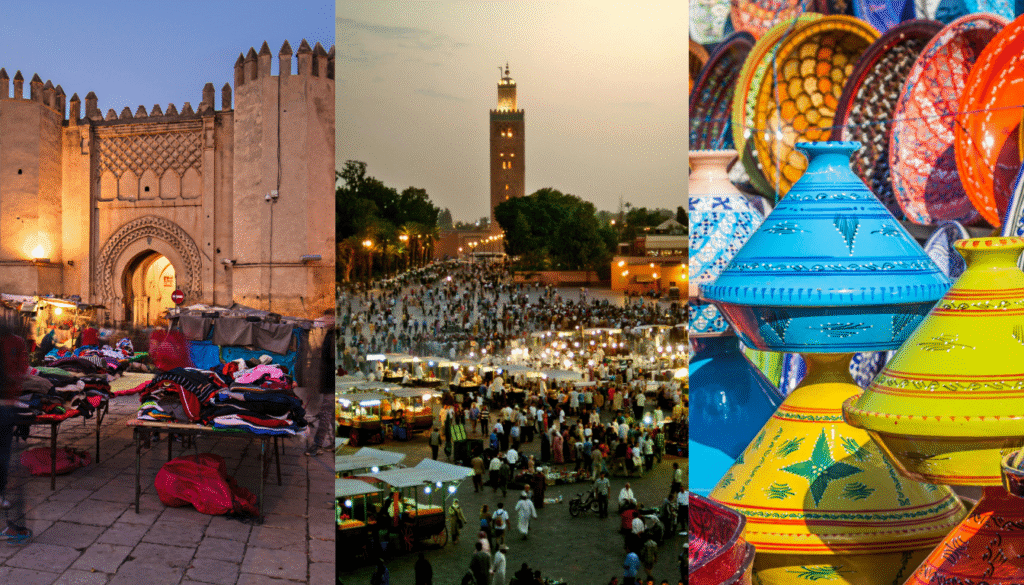
These cultural experiences offer a deeper understanding of Moroccan traditions during Ramadan. By participating, you’ll create lasting memories of your time in Morocco during this special period.
Practical Tips for Travelers During Ramadan
Traveling to Morocco during Ramadan needs careful planning. Knowing the local customs and traditions is key for a smooth trip.
Packing Essentials for Ramadan Travel
When packing for Morocco during Ramadan, think about items for the daily fast and cultural norms.
Snacks and Emergency Supplies
Many restaurants close during the day. Having snacks and emergency supplies can be a big help. Pack:
- Non-perishable snacks like nuts, dried fruits, or energy bars
- A refillable water bottle to stay hydrated
- Any personal medications or emergency supplies
Appropriate Clothing
Dressing modestly is important during Ramadan. Pack clothing that covers your shoulders and knees. Bring a scarf or shawl for your head or shoulders if needed.
Being prepared and respectful of local customs makes your trip meaningful and enjoyable. Stay hydrated, dress modestly, and respect the local culture.
Common Challenges and How to Overcome Them
When traveling to Morocco during Ramadan, it’s key to know the local ways and challenges. The trip can be rewarding, but some hurdles are worth noting, especially about daily life.
One big issue is finding places to eat during the day. Since many eateries close, planning your meals is a must.
Dealing with Limited Daytime Dining Options
To tackle this, meal planning is a smart move. Look for hotels or riads that serve iftar (break-fast meal) or offer room service during Ramadan.
Meal Planning Strategies
Buying snacks and light meals from local shops or markets can help. Also, many places have Ramadan buffets in the evening with lots of traditional foods.
Finding Tourist-Friendly Establishments
In tourist spots, you’ll find restaurants and cafes open or with special Ramadan menus. Looking up these places before you go can really help your dining experience.
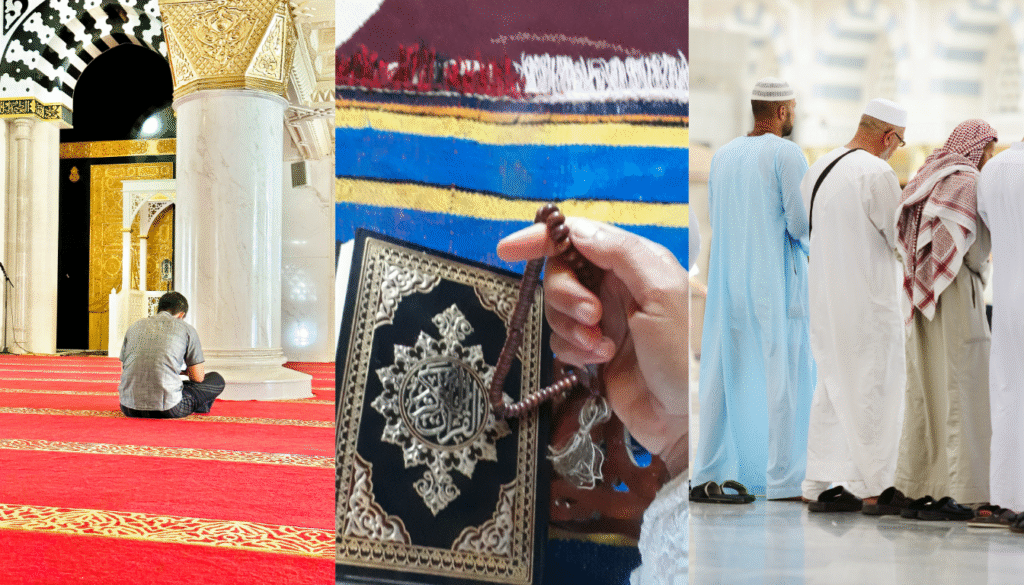
With some planning and knowledge of where to eat, you can enjoy Morocco during Ramadan without too much trouble.
Conclusion: Embracing the Unique Experience of Morocco During Ramadan
Visiting Morocco during Ramadan is a special experience. You get to dive into local traditions and feel the warmth of the people. As you explore the cities and towns, you’ll see how Ramadan changes things, from work hours to cultural events.
There’s so much to enjoy in Morocco during Ramadan. You can check out Ramadan night markets, try delicious local food, and join in on the festivities. These experiences will make your trip unforgettable.
Morocco during Ramadan is a place where spirit, community, and joy meet. By respecting local customs and embracing the unique vibe, you’ll have a rich experience. When planning your trip, keep in mind the local traditions. This way, you’ll have a trip that’s both harmonious and fun.

